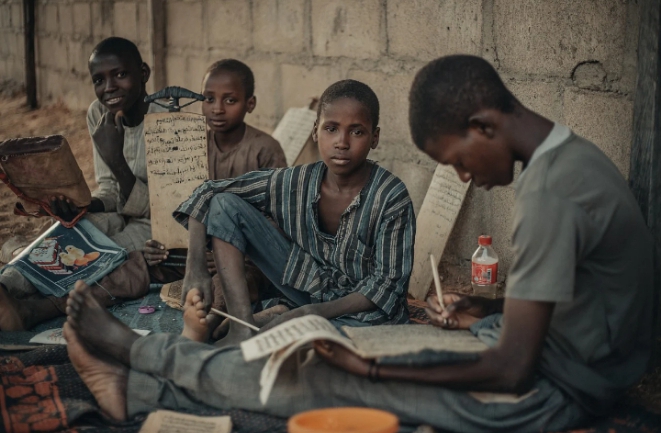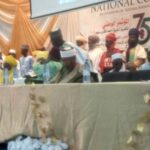By Hafsat Nasiru Zarummai
In the vibrant shade of Nigeria’s different artistic geography, the Almajiri system stands as a controversial tradition.
The term Almajiri is derived from the Arabic word, Al-Muhajir, which refers to a person who migrates from his home in search of Islamic knowledge.
The term has expanded to refer to young people who beg on the streets and do not attend secular school.
The Almajiri system of has been an integral part of Northern Nigeria’s educational and social fabric for
centuries.
Still, in contemporary times, this system has come under serious scrutiny raising questions about its applicability in the
modern society.
Historically, the Almajiri system was designed to give Islamic education to young children, allowing them to study the Quran and gain religious knowledge.
In its substance, it embodies the noble pursuit of enlightenment and well-being. Still, the
Almajiri system frequently involves children soliciting on
the thoroughfares, devoid of acceptable sanctum, education, and healthcare.
This stark reality paints a disquieting picture of neglect and vulnerability. It’s essential to
feel that the Almajiri system, in its traditional form, can attend harmoniously with secular education.
Sweats must be made to save its spiritual aspects while
integrating a comprehensive educational class that equips these children for the future.
Education should empower, not alienate; it should liberate, not confine. Thus, a holistic
approach is needed, one that combines religious training with standard education,
icing that these children aren’t left on the circumferences of society.
Also, addressing
the Almajiri issue demands collaborative attention from the government, communities,
and religious leaders.
Investments in education, healthcare, and social welfare programs are imperative.
Sensitization on it can disband misconceptions about the Almajiri system and garner support for its reform.
Also, collaboration with religious institutions can hasten
the integration of traditional training into an modern educational frame, bridging the
gap between congregation and practical knowledge
The Almajiri issue isn’t just a Nigerian challenge but a global concern. It reflects the
broader struggle for balancing tradition and progress, community and pragmatism.
Hafsat Nasiru Zarummai is a student of Mass Communication at UDUS.



















